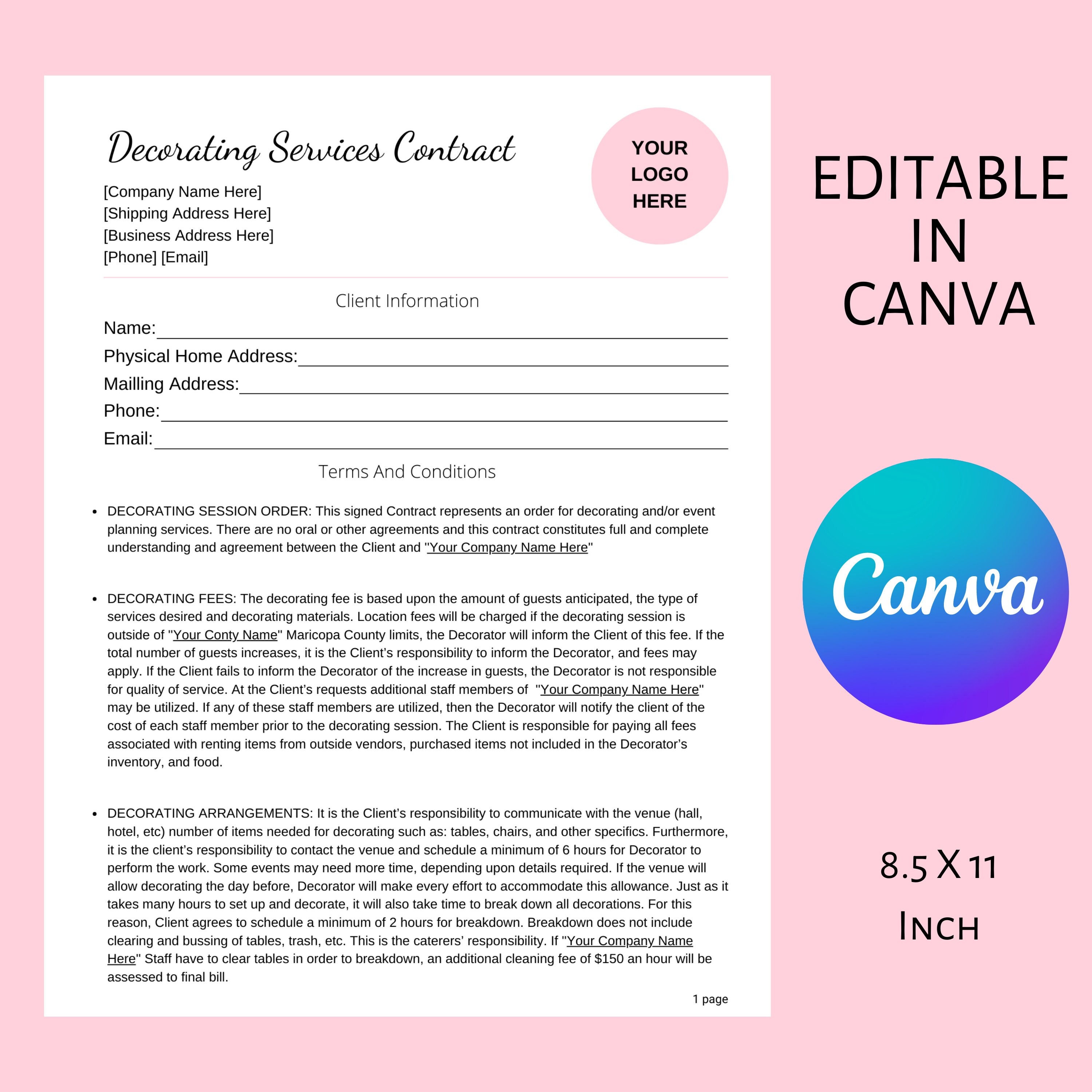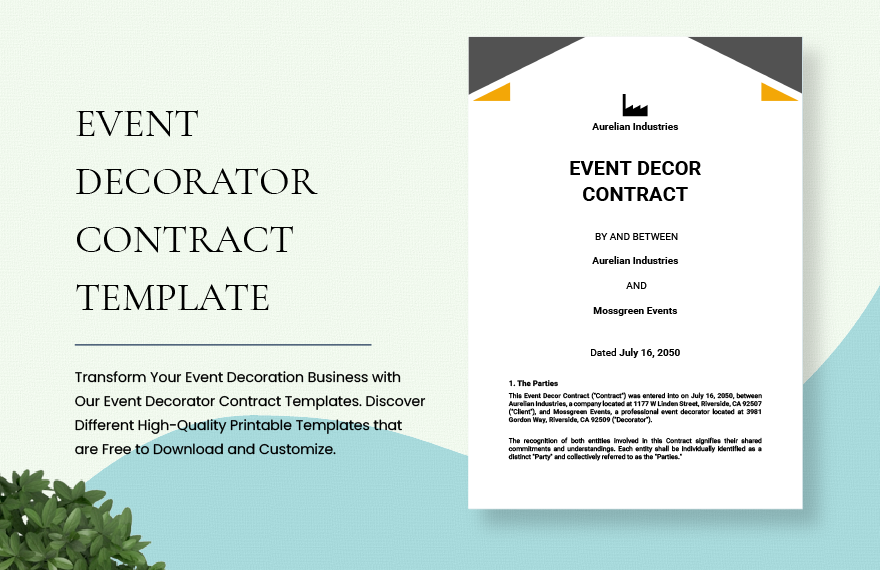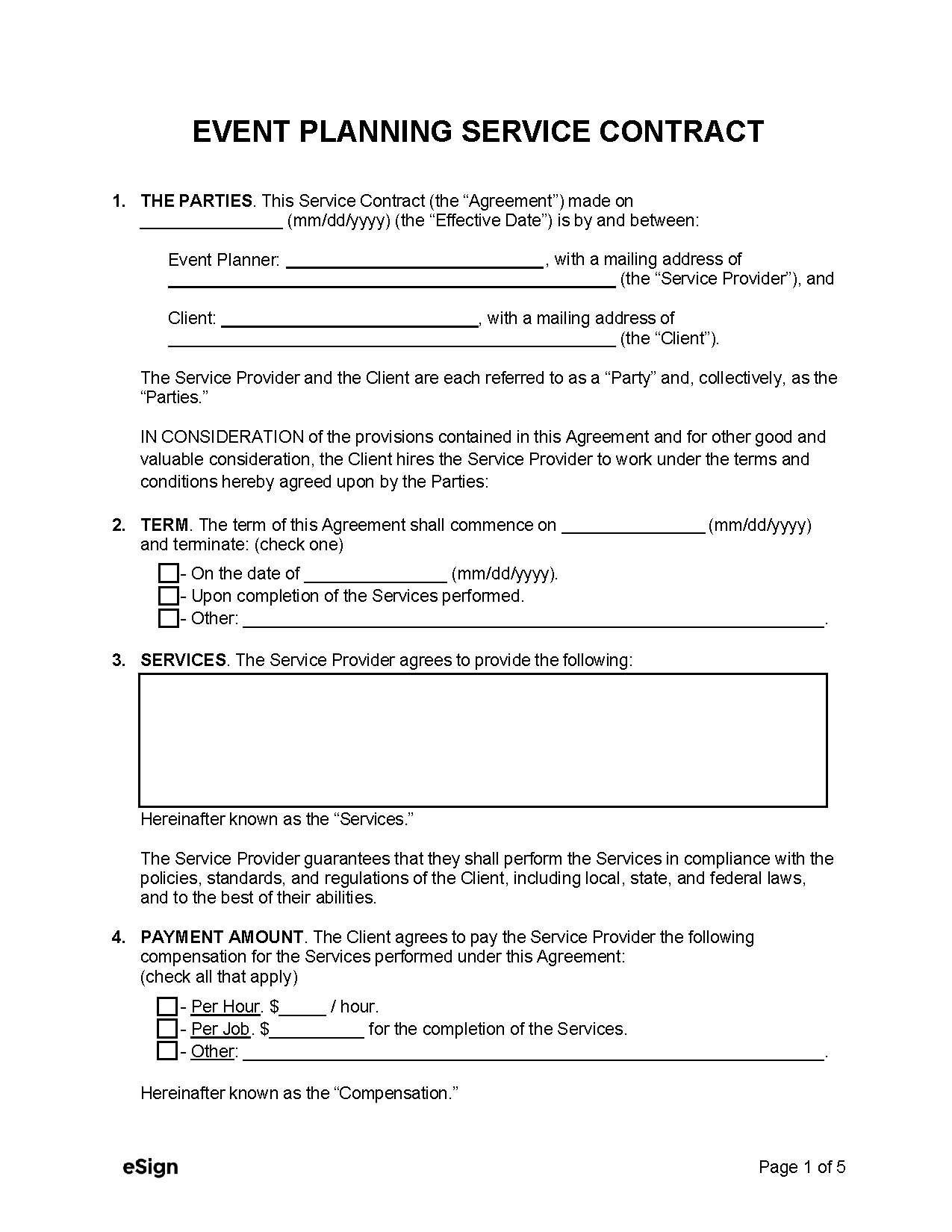Hello, fellow decorators and event planners! Whether you’re a seasoned pro or just starting in the vibrant world of event decoration, understanding the ins and outs of contracts is essential. In this guide, we’ll dive deep into what an event decorator contract template should include, share personal experiences, and equip you with the knowledge you need to create a solid agreement that protects you and your clients. Let’s get started!
What Is an Event Decorator Contract?
An event decorator contract is a legally binding document between a decorator and a client outlining the terms of services provided for an event. This contract is crucial as it sets expectations, protects both parties, and serves as a reference point throughout the planning process.
Importance of Having a Contract
- Clarifies roles and responsibilities
- Provides legal protection
- Prevents misunderstandings
- Establishes payment terms
Essential Elements of an Event Decorator Contract Template
Creating an effective event decorator contract involves including several key elements. Here’s a list of what you should typically include:
1. Contact Information
Make sure to list the full names, addresses, and contact details of both parties (the decorator and the client).

2. Event Details
Specify the date, time, and location of the event. Be as detailed as possible to ensure clarity.
3. Services Provided
Clearly outline the services you will provide, such as theme design, installation, breakdown, and any rental items included.
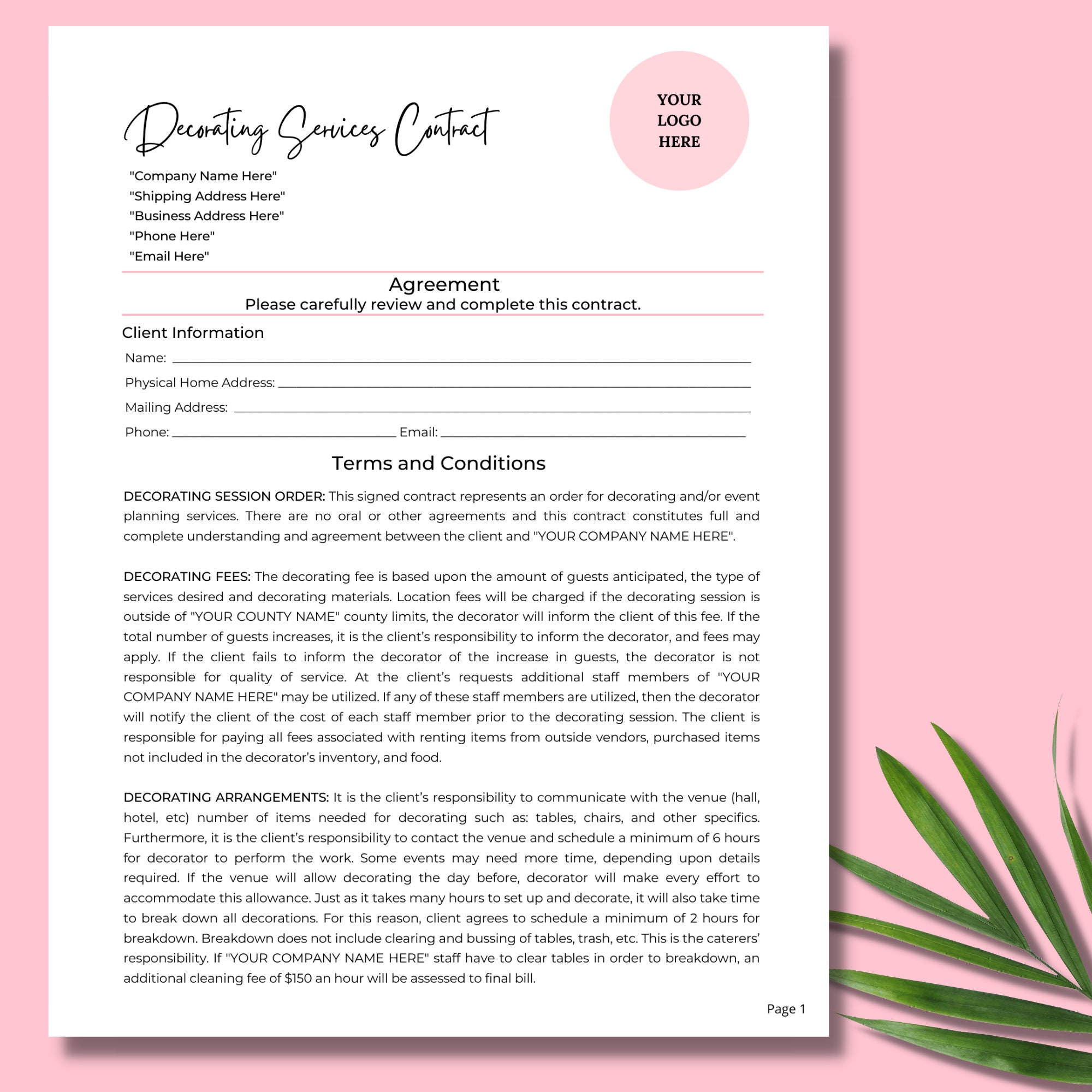
4. Payment Terms
Include the total cost, deposit requirements, payment method, and deadlines for payment.
5. Cancellation and Refund Policy
Outline your policy regarding cancellations and refunds to avoid disputes later on.
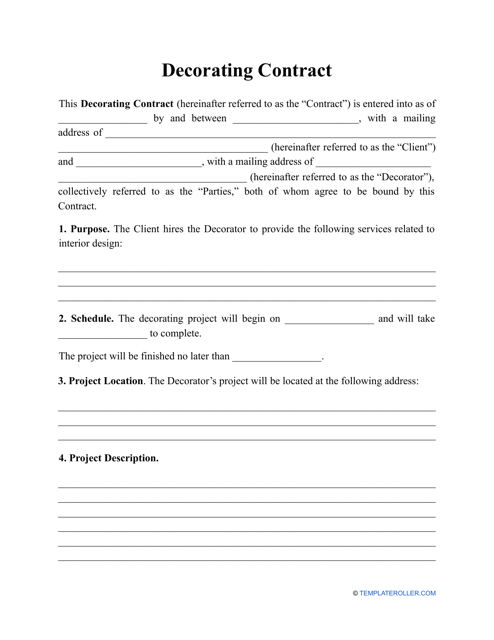
6. Liability and Insurance
Including a clause about liability can protect you in cases of unforeseen incidents. Additionally, specify if you carry insurance for your services.
7. Signatures
Ensure both parties sign the contract to make it legally binding.

Sample Structure of an Event Decorator Contract Template
[Your Business Name] [Your Address] [Your Phone Number] [Your Email] Client Name: [Client's Full Name] Client Address: [Client's Address] Event Date: [Date of Event] Event Location: [Venue Name/Address]Services Provided: [Detailed list of services] Total Cost: [Amount] Deposit: [Amount] Payment Deadline: [Due Date] Cancellation Policy: [Details about your cancellation and refund policy] Liability Clause: [Details regarding liability and insurance]
Cancellation Policy: [Details about your cancellation and refund policy] Liability Clause: [Details regarding liability and insurance] _____________________________________ Decorator Signature Date _____________________________________ Client Signature Date
_____________________________________ Decorator Signature Date _____________________________________ Client Signature Date
Pros and Cons of Using a Contract Template
Pros
- Saves time and effort in drafting contracts from scratch
- Ensures you don’t miss any essential elements
- Provides a professional appearance to clients
Cons
- Templates may not fit every unique situation
- Risk of overlooking important customizations
- Requires periodic updates to reflect changes in laws or business practices
How to Customize Your Contract Template
While templates are useful, personalizing them to suit your business style and the specific needs of your client is crucial. Here’s how to go about it:
1. Review and Revise
After downloading a template, carefully read through it. Make necessary changes that reflect your services and policies.
2. Add Personal Touches
Incorporate specific details about the event, including any unique requests made by the client.
3. Consultation
Consider discussing the contract with legal counsel to ensure compliance with local laws and regulations.
Key Considerations When Drafting an Event Decorator Contract
Here are some additional considerations to keep in mind when creating your contract:
1. State Laws
Legal requirements for contracts can vary by state. Familiarize yourself with local laws to ensure compliance.
2. Detailed Descriptions
Be as detailed as possible regarding the services you provide to avoid any ambiguity.
3. Communication is Key
Engage your clients in discussions about the contract to ensure they understand all terms and conditions.
Comparative Analysis of Different Contract Templates
Here’s a comparison of a few commonly used event decorator contract templates based on versatility, comprehensiveness, and user-friendliness:
| Template Type | Versatility | Comprehensiveness | User-friendliness |
|---|---|---|---|
| Basic Template | Low | Medium | High |
| Standard Template | Medium | High | Medium |
| Customizable Template | High | High | Low |
Frequently Asked Questions (FAQs)
What happens if a client doesn’t sign the contract?
If a client doesn’t sign, you cannot proceed with your services legally. Emphasize the importance of the contract and try to address any concerns they may have.
Can I use a template from the internet without modification?
While it’s tempting to use a ready-made template, it’s advisable to customize it according to your specific services and local laws.
How binding is an electronic signature?
In many jurisdictions, electronic signatures are legally binding as long as both parties agree to their use.
What if there are disputes after the contract is signed?
Refer to the contract for guidance on conflict resolution. Having a legal framework in place can help you navigate disputes more effectively.
Final Thoughts
Creating an event decorator contract template may seem daunting, but it is an essential tool that protects your business and ensures a smooth event planning process. Remember to tailor your contract to reflect the unique aspects of your services and your clients. With the right approach, you can foster trust and transparency, paving the way for successful events and satisfied clients.
Happy decorating! If you have any more questions, feel free to reach out or leave a comment below.
